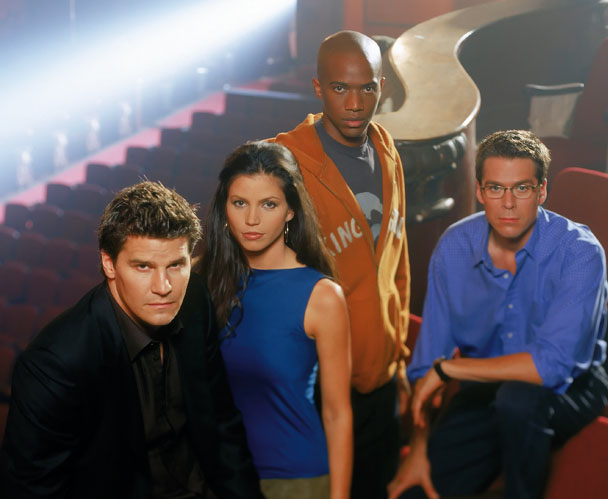
Jayne Nelson gives the Buffy spin-off a big hug
Angel was so much more than a spin-off from Buffy The Vampire Slayer . It became a phenomenal series in its own right: chock-full of laughs, drama and plot twists so relentlessly twisty it ended up as a completely different show than the one it started out as (something even Buffy didn’t really accomplish).
Angel took a mysterious and moody vampire from Sunnydale and deposited him in Los Angeles to battle his heartbreak, his past and his future, with a group of unusual friends to help him through the dark and into the light – figuratively, anyway. But why was this vampire’s journey so fascinating to watch? Jayne Nelson explores the City of Angel...
1 It Wasn’t Buffy
Not, of course, that there’s anything wrong with Angel ’s mother show: far from it. And there are certainly enough similarities bewteen the two shows to ensure that you never forget you’re watching another aspect of the Whedonverse unfold. But what made Angel so fascinating was that it had a style and substance of its own. While Buffy The Vampire Slayer was generally light and sunny, focused on life lessons and finding your place in the world before going out into it, Angel preferred to lurk in the shadows, having already seen the world and learnt his life lessons (and boy, were some of them painful). Buffy was about growing up; Angel was about dealing with being an adult.
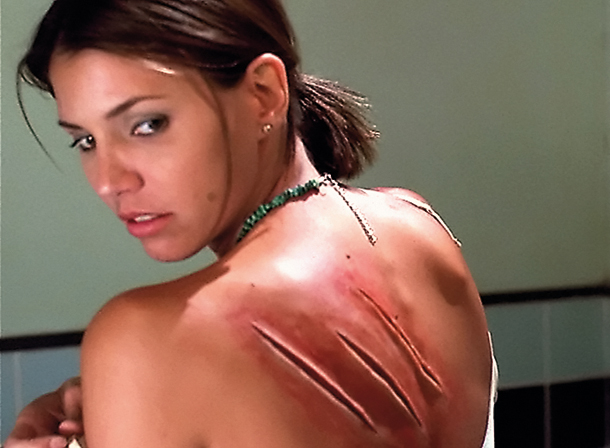
2 Cordelia Chase
Charisma Carpenter’s self-centred, bitchy fashionista had appeared in three seasons of Buffy , but she never really had the chance to shine until she jumped ship from Sunnydale to Los Angeles. It’s a mark of some seriously fine writing that a character who was a bully blossomed into the Cordelia we all know and love: mouthy, hilarious, kind, caring, intelligent and, most of all, loved. It’s a shame the show dropped the ball with her towards the end, but she did have a wonderful send-off in Angel’s 100th episode, “You’re Welcome”.
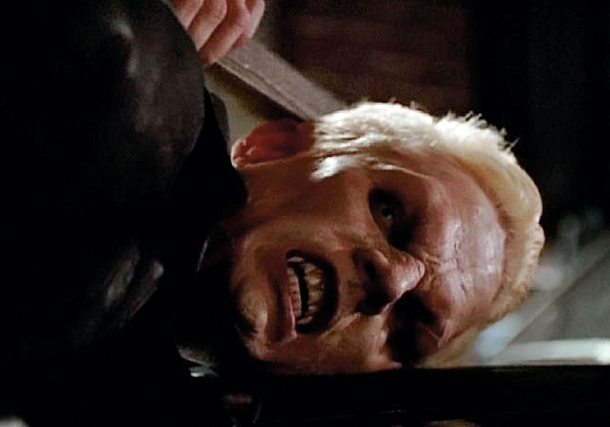
3 Spike
He only appeared as a full-time cast member in Angel ’s final season but James Marsters’ Spike had made his mark long before that in Los Angeles, stealing every scene in the first season episode “In The Dark”. The contrast between Angel’s moody vampire and Spike’s primal and punkish bad boy was always guaranteed to provide fireworks, and even shoving a soul in Spike for his post- Buffy starring role didn’t diminish the fun both vamps brought to the show. As if that wasn’t enough, the fact that both Angel and Spike were besotted with Buffy provided a frisson of jealousy… Oddly, when Spike joined the show, it felt like he should always have been part of the show.
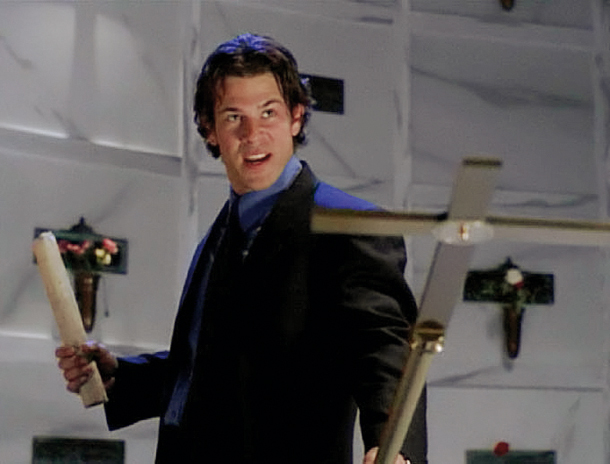
4 The Shanshu Prophecy
The season one finale, “To Shanshu In LA”, was a watershed moment for Angel . Hitherto the series had focused on Angel making amends for his actions as Angelus and his grief over losing his One True Love, but “To Shanshu In LA” cleverly introduced a new carrot-on-a-stick for our hero. According to a prophecy, Angel had a destiny to fulfil and he’d become human again as a reward for completing it. With this knowledge under his belt, Angel now had a goal to achieve rather than a vague and nebulous mission to make himself feel better.
Get sneak previews, exclusive competitions and details of special events each month!
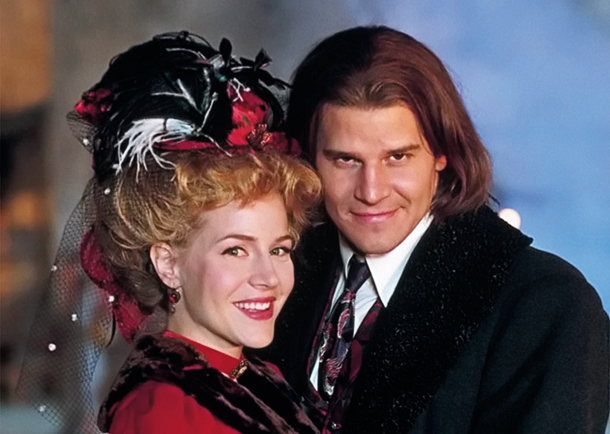
5 Crossovers
It must have been a logistical nightmare to team up episodes of Buffy and Angel into special “crossover” events, and the writing teams all but gave up after two seasons and Buffy’s switch from The WB to UPN. However, while not all of them were successful either side – compare Buffy ’s lacklustre episode “Pangs” with its Angel -ic partner, the sublime “I Will Remember You” – the two-part treat “Fool For Love” ( Buffy) and “Darla” ( Angel) can be happily counted as among the finest hours of each show.
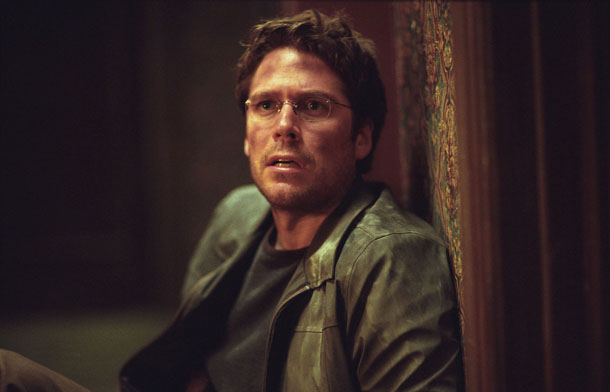
6 Wesley Wyndam-Price
Cordelia wasn’t the only character who was punted over from Buffy as a one-dimensional parody before becoming a fully-fleshed-out, multidimensional personality in A ngel . While she merely developed a human side, however, Wesley got to go through so many transformations it’s hard to believe he was ever that geeky Watcher who first turned up in Sunnydale.
From his initial, laughable attempts at being a “rogue demon hunter” to his epic double-crossing of his friends in order to save baby Connor’s life, Wesley did it all. He flirted with the dark side yet remained fiercely loyal to the Angel Investigations team, all the while madly in love with the oblivious Fred. We can only imagine how much Alexis Denisof enjoyed opening each new script and seeing what he was doing that week.
7 LA (Horror) Noir
Things were dark in the City of Angel. We’re not just talking about all those night-shoots in rat-infested alleyways for the cast and crew – Angel’s darkness, particularly in its first and third seasons, came from the show’s desire to play with bleak, disturbing themes (seriously, can you even get more disturbing than a pregnant vampire momma staking herself so her body dissolves into dust and her baby stays behind?). While the show’s look was often noirish, all shadowy buildings and private investigator clichés, its subject matter was often less Mickey Spillane, more Clive Barker.
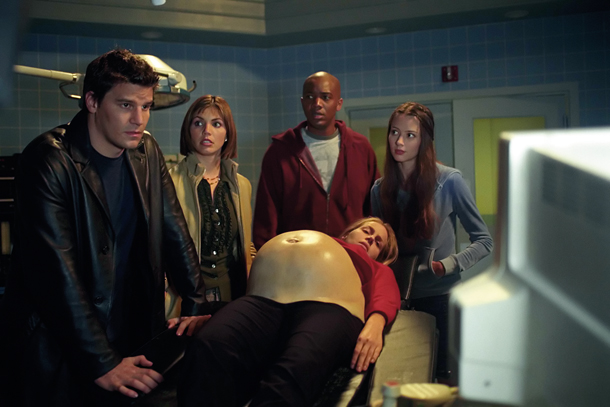
8 Darla
Who would have thought that the first vampire to show her face in Buffy would end up becoming such an integral part of Angel’s storyline – particularly when she’d already been staked? Resurrected at the end of the first season, Darla caused no end of trouble for our heroes, both as a vulnerable human being and as a vampire. She also provided the opportunity for some interesting flashbacks to Angelus’ past and was, of course, the mother of the unlucky Connor, who really didn’t have the best start in life. Julie Benz’s ability to play Darla both as a victim and a terrifying monster made her irresistible.
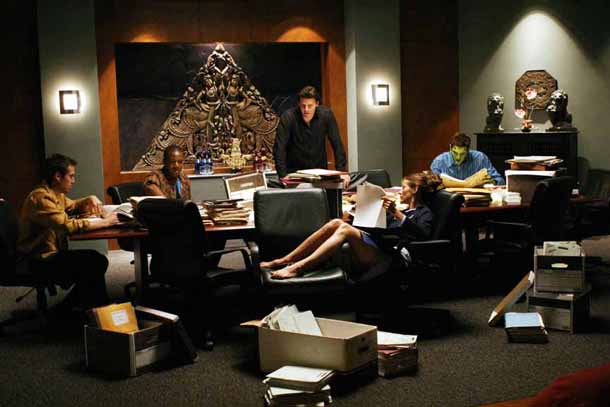
9 Wolfram & Hart
The mighty multidimensional demonic law firm Wolfram & Hart was a stroke of absolute genius from the Angel showrunners. Playing on the well-known fact that Californians use lawyers to deal with everything under the sun, creating a firm of lawyers to deal with everything not under the sun was an inspiration. Run by shadowy Senior Partners, equipped with resources beyond imagination, employing a selection of slimy yet fascinating bastards, W&H became the Big Bad of Angel for most of its run – and making our heroes the heads of the company for the show’s final year was a superb role-reversal.
10 The Love Triangle
The push-pull love affair between Buffy and Angel was the main thrust of Buffy’s first three years, but with Angel relocated and Buffy nowhere in sight, a little sexual tension was needed to keep Angel the series ticking along. The growing friendship and attraction between Angel and Cordy was fun to watch, yes, but the brilliant love triangle between Gunn, Fred and Wesley was the show’s defining romance. Poor Fred had no idea what effect she had on the men around her...
11 Caritas
Buffy had The Bronze. You’d expect Angel’s local hangout to be a little more Californian; maybe a little grungier, more adult. Instead, he chose a karaoke bar where various supernatural entities go to sing a song, have their auras read by the psychic running the joint and then get advice based upon his reading. Only in LA.
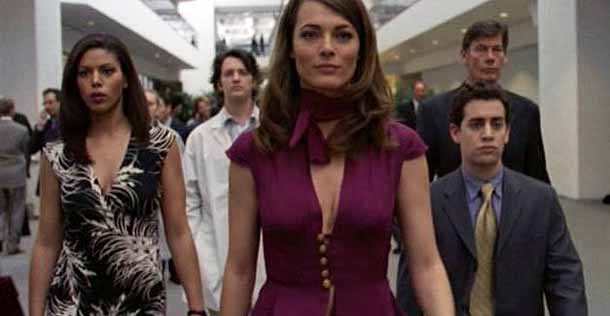
12 Ch-ch-changes
Nobody in their wildest dreams could accuse Angel of getting stale. Not only did its cast keep growing and the show change its locations year after year, it also shook up our expectations as thoroughly as a kid shaking an Etch-A-Sketch. Angel would be a puppy-like, brooding, damaged hero one week; the next he’d be the homicidal Angelus. He’d lose his soul or gain his soul or be somewhere in between. He’d save lives and be a goofy dad to his baby, or he’d kill indiscriminately and become a loner. He’d fight on the side of good, but then he’d end up as the head of the world’s most diabolical law firm. And that’s just what happened to Angel, let alone everybody else!
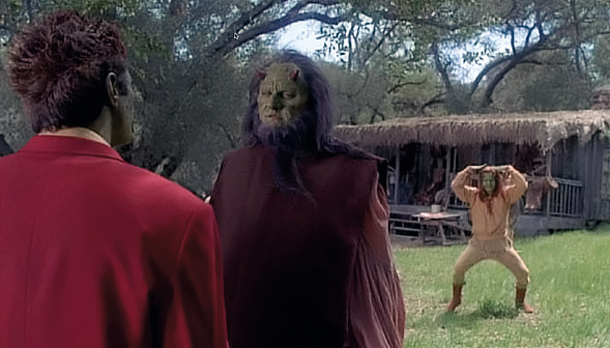
13 The Dance Of Joy
“Numfar, do the dance of joy!” Do we need to say more?
14 It’s Not One Big Happy Family
The people Angel surrounded himself with weren’t a happy Scooby Gang out to rid the world of evil; hell, no. They were far more complicated than that. They fought, they backstabbed, they fell in love and went their separate ways more often than not, from Wesley’s betrayal and subsequent ostracising, to Cordelia’s possession and her naughty behaviour with Connor.
You couldn’t take anything for granted, either. Doyle died after just a few episodes, and Fred died and came back as a deity named Illyria. Wesley went dark side and returned. Gunn got “lawyered up” in more ways than one in the final season. The team all had one thing in common – Angel – but it didn’t mean they couldn’t think independently.
15 The Dialogue
Continuing the template set by Buffy , the writing talents of Whedon et al ensured that Angel was a laugh-a-minute, from the pilot episode’s, “Get a job, you lazy sow!” (Doyle to a passing homeless woman after he’s been preaching about love, hope and kindness), to corkers such as, “It’s way beyond my Ken... and my Barbie, and all my action figures.”
Consider Spike’s famed speech from “In The Dark”: “Evil’s still afoot. And I’m almost out of that nancy-boy hair-gel I like so much. Quickly, to the Angel-mobile, away!” Does it get any better than that?

16 Lindsey, Lilah & Lorne
They’re the three “L”s who made the supporting cast of Angel so glorious. Lindsey McDonald (Christian Kane) was the reluctant Wolfram & Hart lawyer who made Angel’s life hell two times over; Lilah Morgan (Stephanie Romanov) was his sometime partner, a scheming, ambitious temptress who wrapped Wesley around her little finger; and Lorne (Andy Hallett) was... well, Lorne. Always ready with a witty quip, soul full of music, loyal to the end. Only the latter became a full-time cast member but all three helped to shape Angel .
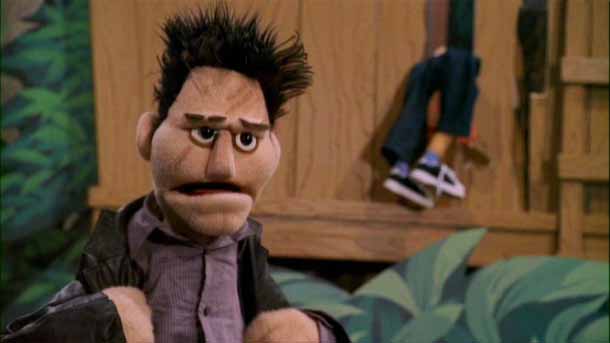
17 Smile Time
Quite how any show is able to pull off an episode in which its lead character gets turned into a puppet is beyond us, but Angel actually managed it. Ben Edlund’s hilarious script coupled with a fantastic reimagining of David Boreanaz as a wee little puppet man (“I’m made of felt. And my nose comes off!”) both make “Smile Time” a classic. But there’s more: writer/producer David Fury as a puppet-controlled victim; the team’s incredulity at seeing Angel afflicted (“Oh my god! Angel, you’re cute!” coos Fred); Angel trying to woo a new girlfriend, but being hampered by his foam body... Let’s face it, “Smile Time” is an absolute joy.
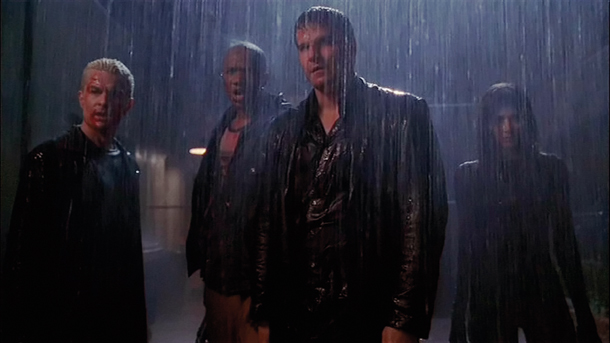
18 The Finale (spoilers!)
With the showrunners informed mid-way through season five that it would be their last, they had just enough time to write a finale that would wrap up all loose ends and see our heroes get the rewards they deserved... except they didn’t. Instead, the finalé, “Not Fade Away”, was an all-out actioner that saw our Angelic team take down as much evil as they could, but not without consequences. Our favourite bits are Lindsey’s shock at the fact Lorne is the one to kill him, and Angel’s face as he contemplates fighting a dragon.
19 The Writers
It’s easy to focus on Joss Whedon being the one-and-only driving force behind Angel , in much the same way as people seem to forget Tim Minear was his co-creator on Firefly . There’s no denying that Whedon takes a lot of credit (for both shows) but hell, even he needs back-up.
In Angel ’s case it was his co-creator David Greenwalt and a writing team containing some of US television’s brightest names, from Jeffrey Bell and Drew Goddard to Jane Espenson and Doug Petrie. This pool of talent has since moved on to work on some of America’s biggest shows – Angel trained them well.
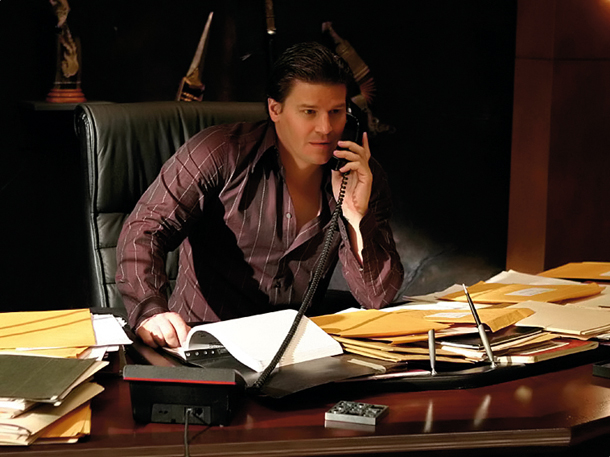
20 David Boreanaz
David Boreanaz is an actor who can do it all: comedy, pathos, despair, misery, anger, sex appeal... you name it, he can provide it. Which came in very handy for Angel, given that his character went through just about every emotion you can imagine across a span of over 200 years. He was just as good at selling fights as he was at brooding, and his charisma meant that he was always the focus of every scene. Boreanaz’s ongoing success on Bones is proof that he wasn’t just a one-character wonder – just as he was lucky to play Angel, Angel was lucky to have him.
SFX Magazine is the world's number one sci-fi, fantasy, and horror magazine published by Future PLC. Established in 1995, SFX Magazine prides itself on writing for its fans, welcoming geeks, collectors, and aficionados into its readership for over 25 years. Covering films, TV shows, books, comics, games, merch, and more, SFX Magazine is published every month. If you love it, chances are we do too and you'll find it in SFX.


